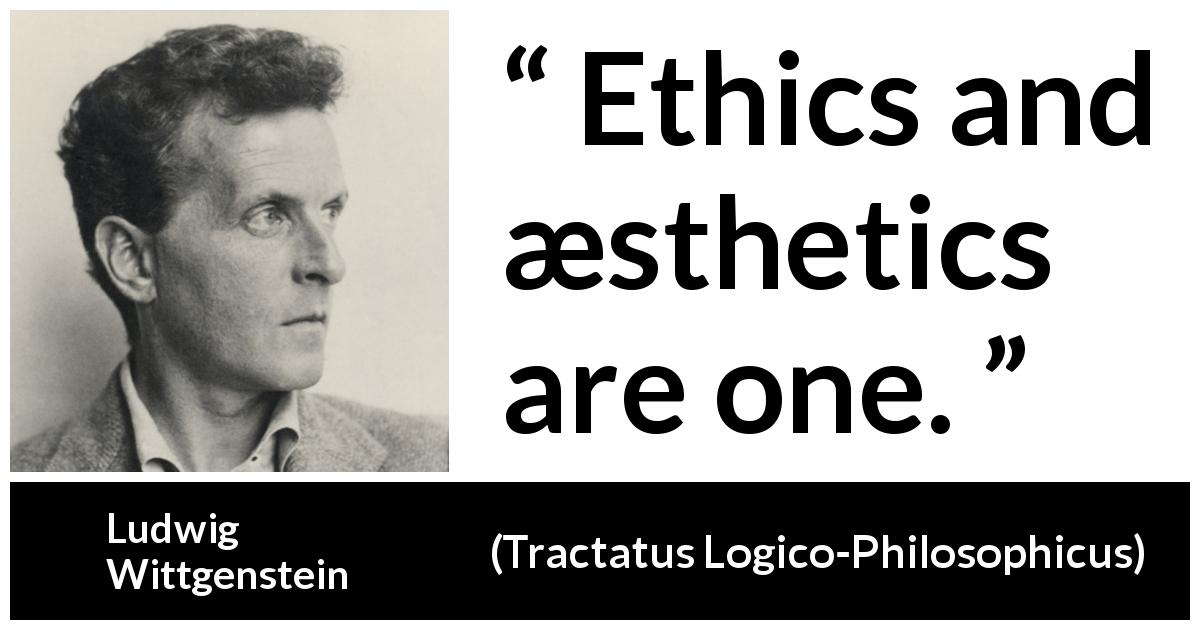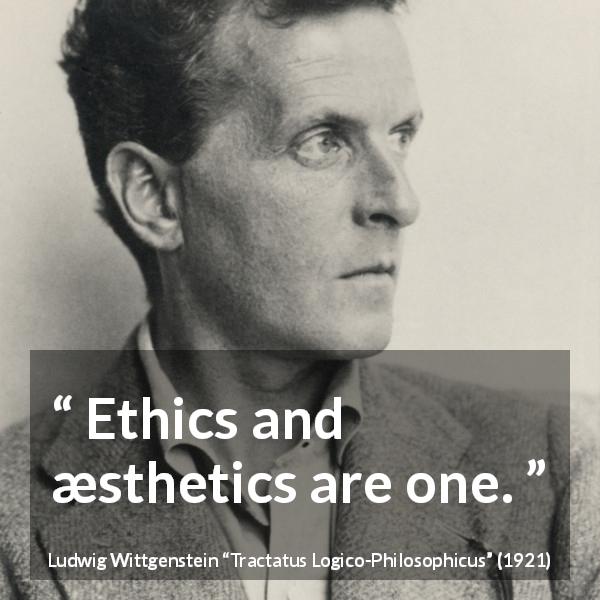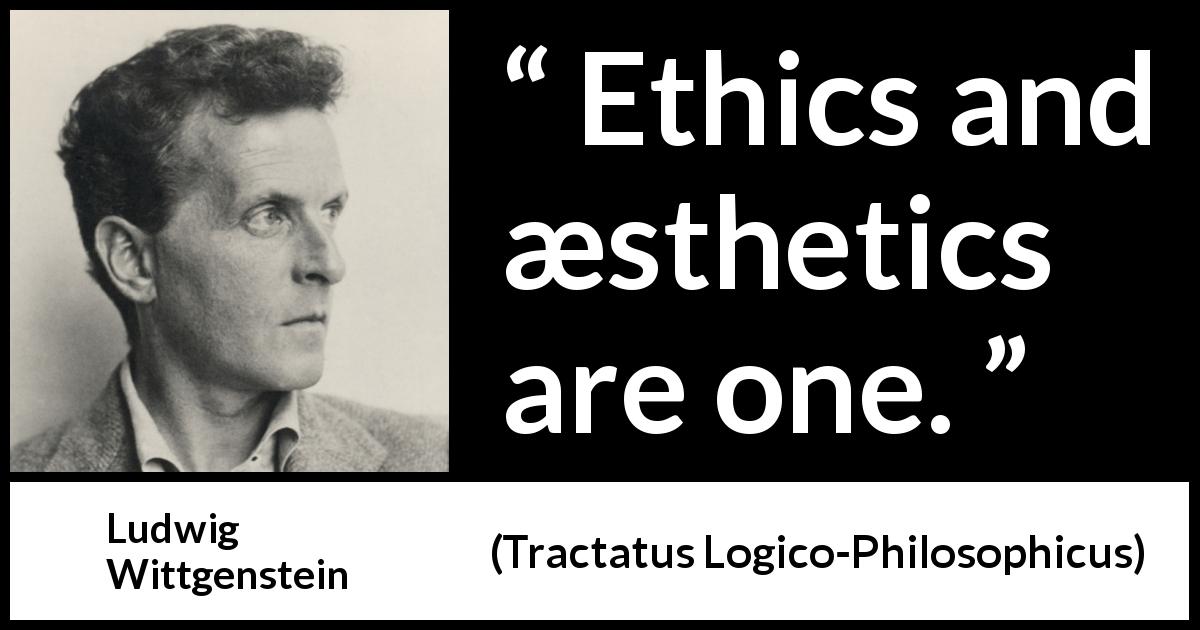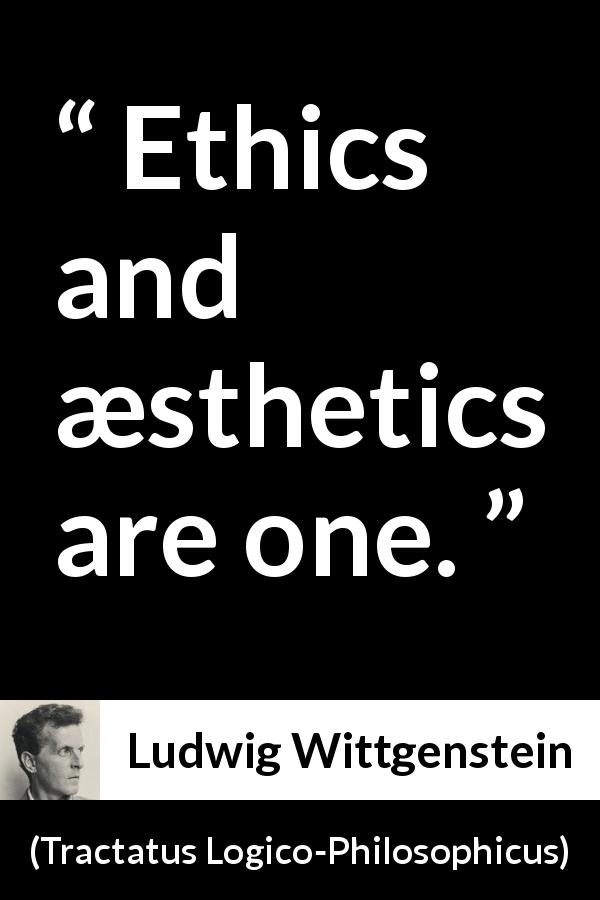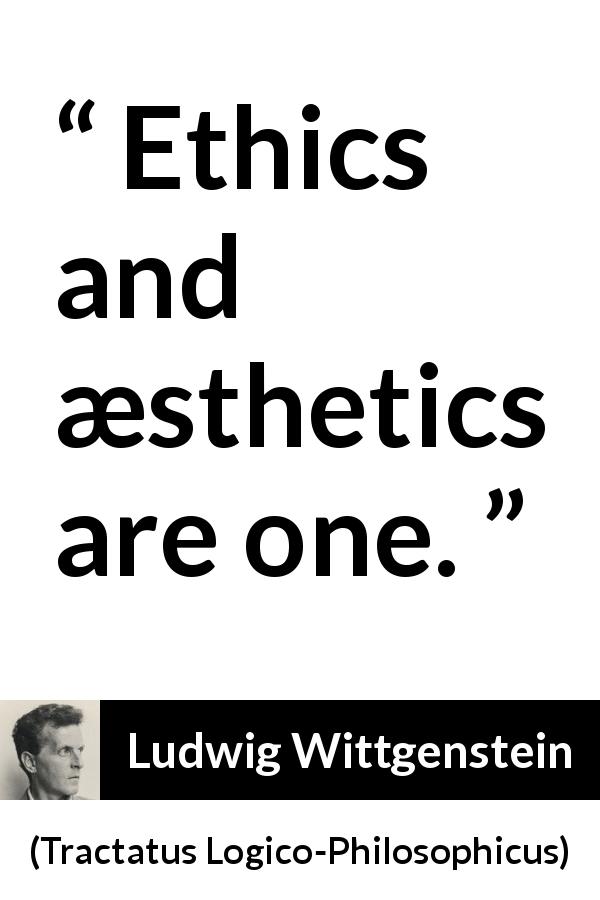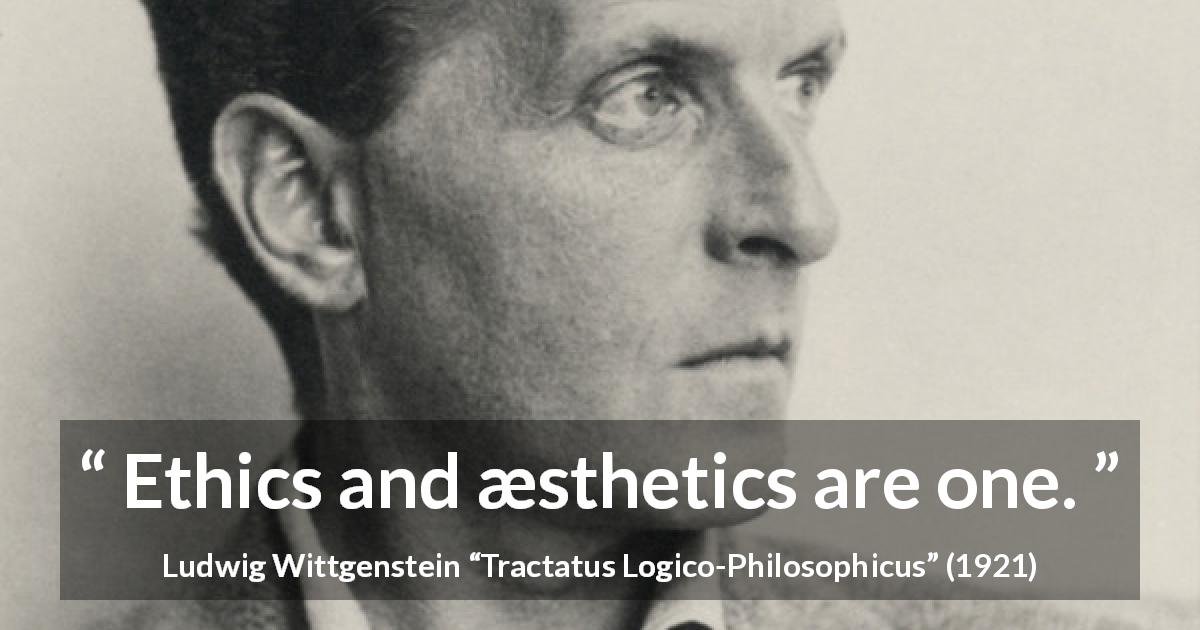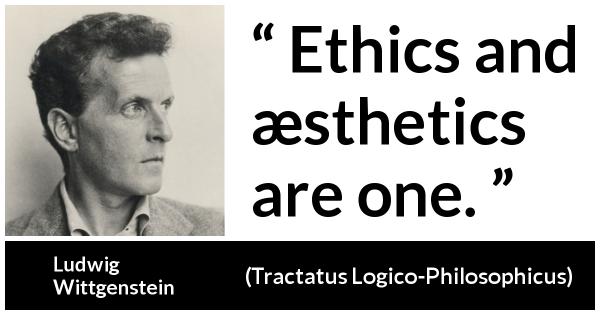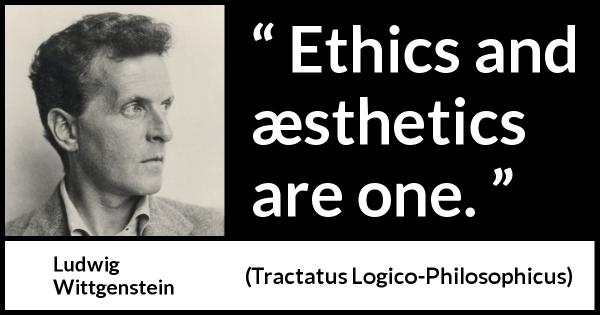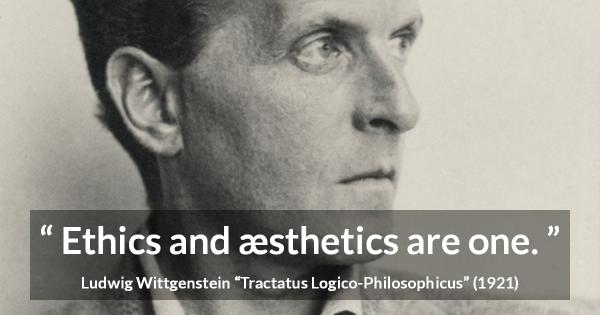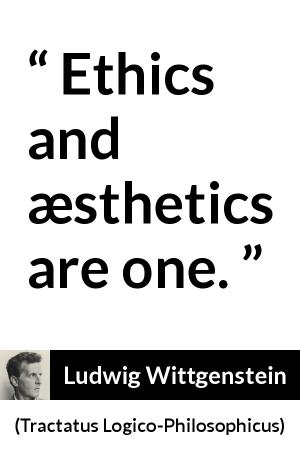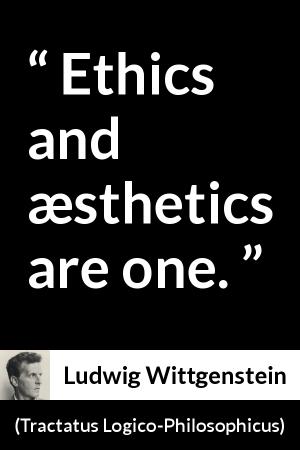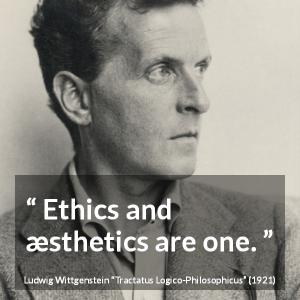“ Ethics and æsthetics are one. ”
Ludwig Wittgenstein, Tractatus Logico-Philosophicus (1921). copy citation
| Author | Ludwig Wittgenstein |
|---|---|
| Source | Tractatus Logico-Philosophicus |
| Topic | ethics aesthetics |
| Date | 1921 |
| Language | English |
| Reference | |
| Note | Translated by C. K. Ogden |
| Weblink | http://www.gutenberg.org/files/5740/5740-pdf.pdf |
Context
“Hence also there can be no ethical propositions.
Propositions cannot express anything higher.
6.421 OGD [→GER | →P/M] It is clear that ethics cannot be expressed.
Ethics is transcendental.
(Ethics and æsthetics are one.)
6.422 OGD [→GER | →P/M] The first thought in setting up an ethical law of the form «thou shalt …» is: And what if I do not do it? But it is clear that ethics has nothing to do with punishment and reward in the ordinary sense.” source
Propositions cannot express anything higher.
6.421 OGD [→GER | →P/M] It is clear that ethics cannot be expressed.
Ethics is transcendental.
(Ethics and æsthetics are one.)
6.422 OGD [→GER | →P/M] The first thought in setting up an ethical law of the form «thou shalt …» is: And what if I do not do it? But it is clear that ethics has nothing to do with punishment and reward in the ordinary sense.” source
